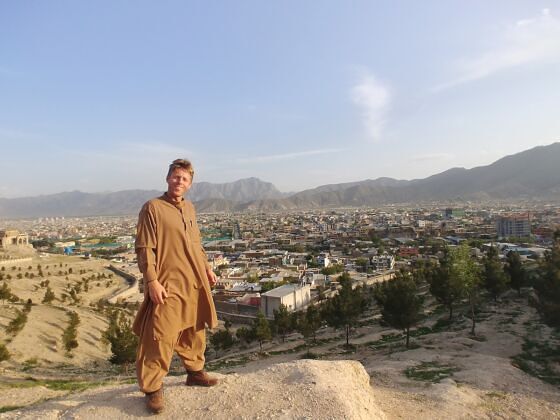Explorers of the Modern Age is a new series by Matador Network spotlighting trailblazers in the world of travel. The world may be less mysterious than it was centuries ago, but the Golden Age of Exploration isn’t quite over yet. There are still new corners of the map to be illuminated, boundaries to be pushed, and travel records to break. These are the explorers making it happen.


If you’ve read Jules Verne’s Around the World in 80 Days — or seen the ill-conceived movie starring Jackie Chan — you know that Phileas Fogg traveled around the globe in 80 days. That was impressive in 1872 when the story takes place, but in the 21st century, the bar is a lot higher for explorers. Author and traveler Gunnar Garfors embarked on his own Vernian adventure that not only dwarfed Fogg’s fictional accomplishment, but set a world record in the process. He circumnavigated the globe in just 56 hours and didn’t stop there. He’s also the first person in the world to travel to every country twice, and visit five continents in a single day.
The embodiment of the modern-day adventurer, Garfors, has taken inspiration from some of history’s most storied explorers, while serving as an inspiration himself to travelers. We spoke to him about how record-setting travel differs from leisure travel, tips for revisiting your favorite destinations, and what the future of exploration looks like.
Matador Network: Why travel to every country twice?
Gunner Garfors: It’s an insult to visit a country only once. Coming back gives the possibility to observe changes, meet friends again and perhaps see new places. Having visited before also ensures that you have better knowledge about the place and you are better prepared when it comes to meeting people there and exploring the place.
Does record-setting travel take some of the fun out of travel?
The 10 world records I have set do not have much to do about travel, but about logistics. Most people still call them travel world records, but in war, love and world record attempts, everything is allowed. The adrenaline you get when achieving something that no one else has done is exhilarating. I have done most of the records with friends, which makes them into ultimate boy’s trips. I still don’t count world record attempts as travel, because the goal is to set a world record, not to experience certain places. I prefer to take my time when I travel, and be able to explore properly and meet those that live there. World records are super fun, but in very different ways than real travels.
When people ask what you do for a living, how do you explain it while still sounding relatable?
Being a travel writer is something that most people can relate well to. Especially since I not only write about far-flung places. My last two books are, for example, about spectacular places beyond the beaten track in Norway. That means that I have traveled “everywhere” in Norway, and that is such an icebreaker when speaking to other Norwegians. When speaking to people from elsewhere, I have visited their country at least twice, know their country, and have stories to tell. That makes it quite easy for most people to relate to me in one way or another.
What’s your advice for visiting the same place a second time? How do you see it with fresh eyes?
Challenge yourself to see new places and different parts of the town, region, or country. It is also always good to meet someone local, so reconnect with those you met on previous trips. The locals are always the best experts, and much more knowledgeable, more reliable, and more up to date than guidebooks. Seeing new parts of the country or trying out different restaurants, bars, beaches or hikes than last time is a good way to expand your knowledge of any country. If possible, do also meet someone else than last time, to get new perspectives on the country, its politics, attractions, and challenges.
What would you say to someone who believes there’s nothing left to explore in the world?
Arrogance is overrated. It certainly doesn’t help bridge cultures or create friendships either. If traveling doesn’t humble you, nothing will, so perhaps they should travel differently and engage much more with local people from different backgrounds and classes.
Which explorers inspired you?
Leif Erikson. He was the first European to visit North America almost 500 years before Columbus. And Fridtjof Nansen who was the first person to cross Greenland and who later did an awful lot of very impressive and rewarding work for refugees.
Do you think 10-20 years from now, there will still be people exploring new, undiscovered places?
Yes, but unfortunately primarily for the wrong reasons. Melting ice means that places that have been hidden for thousands of years suddenly reappear, so to speak. There are also still unexplored places in a lot of countries. People do for some reason have a tendency to flock around major attractions, instead of seeking the unique and undiscovered.
What’s one destination you’ve always wanted to visit, but haven’t?
I have shamefully still not visited the Hebrides in Scotland. I sure will, though.